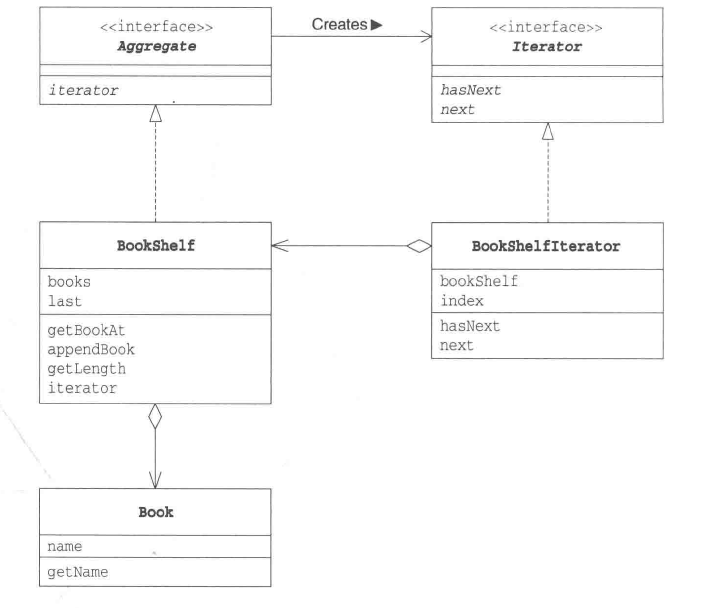设计原理:

代码清单:
接口类
public interface Iterator { boolean hasNext(); Object next(); }
public interface Aggregate { Iterator iterator(); }
实现类:
public class BookShelf implements Aggregate { private int last; private Book[] books; BookShelf(int maxSize){ last = 0; books = new Book[maxSize]; } public void addBook(Book book){ books[last]=book; last++; } public Book getBookBylast(int last){ return books[last]; } public int Size(){ return last; } @Override public Iterator iterator() { return new BookShelfIterator(this); } }
public class BookShelfIterator implements Iterator{ private BookShelf bookShelf; private int index; public BookShelfIterator(BookShelf bookShelf){ index = 0; this.bookShelf = bookShelf; } @Override public boolean hasNext() { if(index<bookShelf.Size()) return true; else return false; } @Override public Object next() { Book book = bookShelf.getBookBylast(index); index++; return book; } }
实体类:
public class Book { private String name; Book(String name){ this.name = name; } public String getName() { return name; } public void setName(String name) { this.name = name; } }
测试类
public class Main { public static void main(String[] args){ BookShelf bookShelf = new BookShelf(20); bookShelf.addBook(new Book("水浒传")); bookShelf.addBook(new Book("西游记")); bookShelf.addBook(new Book("三国志")); Iterator iterator = bookShelf.iterator(); while (iterator.hasNext()){ Book book = (Book)iterator.next(); System.out.println(book.getName()); } } }